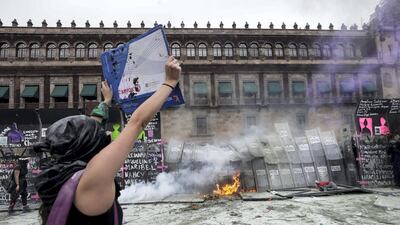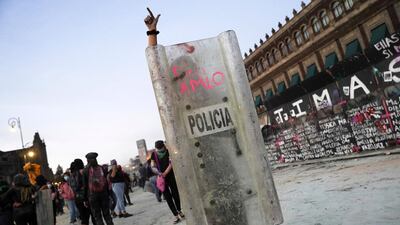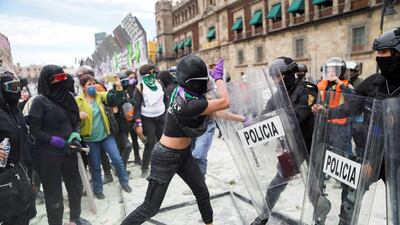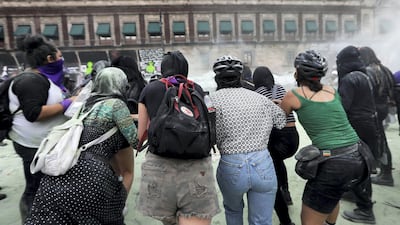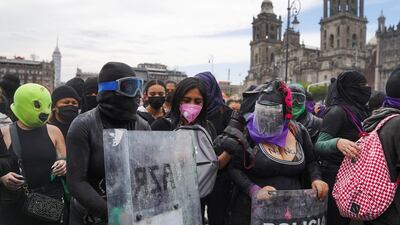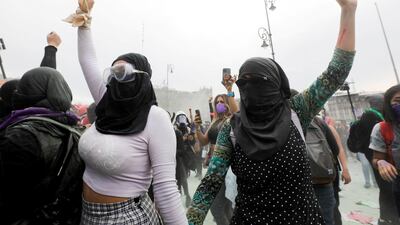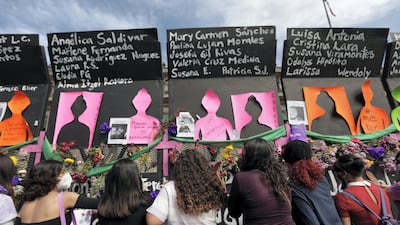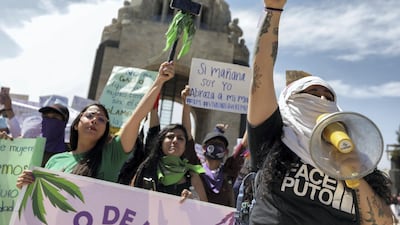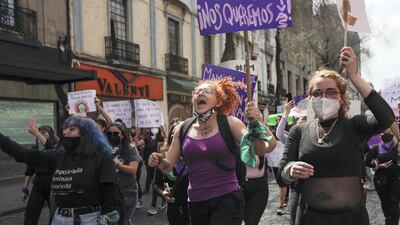It has been just over six decades since women gained the right to vote in Mexico, granting them the right to citizenship.
Since then, women have taken made strides on the country’s political scene, and have held high-profile roles in the International Criminal Court and the UN’s Joint Inspection Unit oversight body.
In 2018, there were almost an equal number of men and women in Mexico's congress, with women leading the Internal Affairs, Security, Labour, Environment, Culture, Energy and Public Ministries.
Two years later, the country announced a ‘feminist’ foreign policy that puts gender equality at the forefront of its agenda.
One of its first orders of business was to curb the impact of the coronavirus pandemic which has hit girls and women disproportionately harder across the world and, in Mexico specifically, exposed some of the cracks in the system.
"Covid-19 highlighted the structural challenges that we continue to face, like gender violence, gender stereotypes … and the lack of access to sexual and reproductive medical services," Deputy Minister for Multilateral Affairs Martha Delgado Peralta told The National.
Gender-based violence
Marital rape was criminalised by the Supreme Court in 2005, but gender-based violence remained a concern.
In 2020, women demonstrated regularly against gender-based violence but were met with "violent and sexualised language" and "sexual violence", rights group Amnesty International said this month before International Women's Day.
“The authorities at various levels of government have stigmatised women's protests, characterising them as ‘violent’ with the aim of discrediting their activism and questioning their motives," executive director at Amnesty International Mexico, Tania Reneaum Panszi, said in a statement.
In light of this phenomenon, the government rolled out numerous initiatives to end gender-based discrimination, though the real challenges were at the foundational level.
“We face structural challenges that do not allow women and girls to exercise all their rights equally,” Ms Peralta said.
Political participation
The high-level participation of women in the upper echelons of government provides the “legal framework” to make deeper changes within the country’s fabric, Ms Peralta said.
But shortcomings in the country’s capacity to improve efforts to help women still pose a problem.
“Although women have higher levels of education, leadership tools are hardly taught [to them] compared to men.”
This is reflected in the gender wage gap which has actually increased in recent years, with the latest figures from 2019 pointing at an 18.8 per cent disparity, according to the Organisation for Economic Co-operation and Development (OECD).
Ideological issues related to the stereotypically "masculine nature" of power are at the centre of this problem, Ms Peralta said.
“We must change that conception and make it more egalitarian and fairer, with women and girls at the centre, which implies changing the traditional roles of men and women and creating an enabling environment where both sexes develop their potential without discrimination."
Finally, women must band together and demonstrate that they can work cohesively.
“Women in power contribute to being examples for other women … We must show that work between women is possible and desirable. Without our participation in the public sphere, there will be no possible change,” Ms Peralta said.
“All women have an impressive resilience. What I can tell all women is to remain resilient. Women's struggles are many, but fair. We've shown it many times.”


